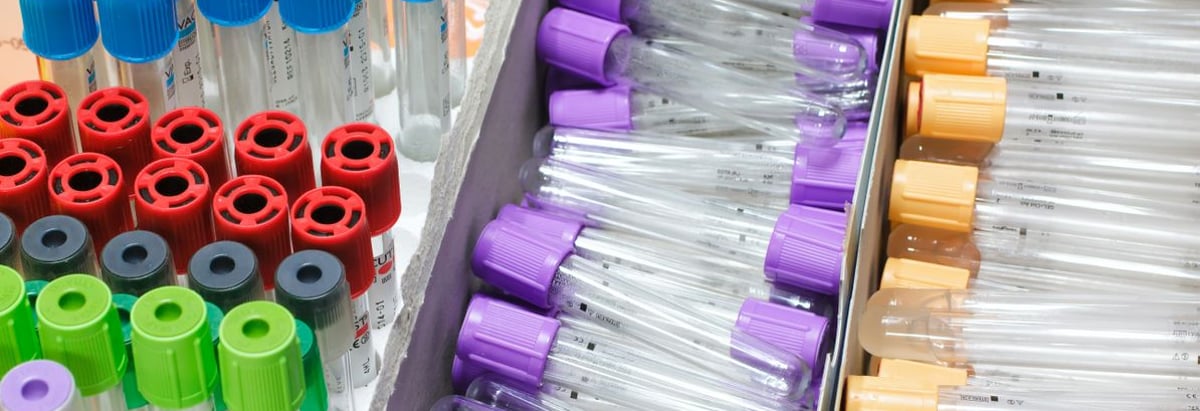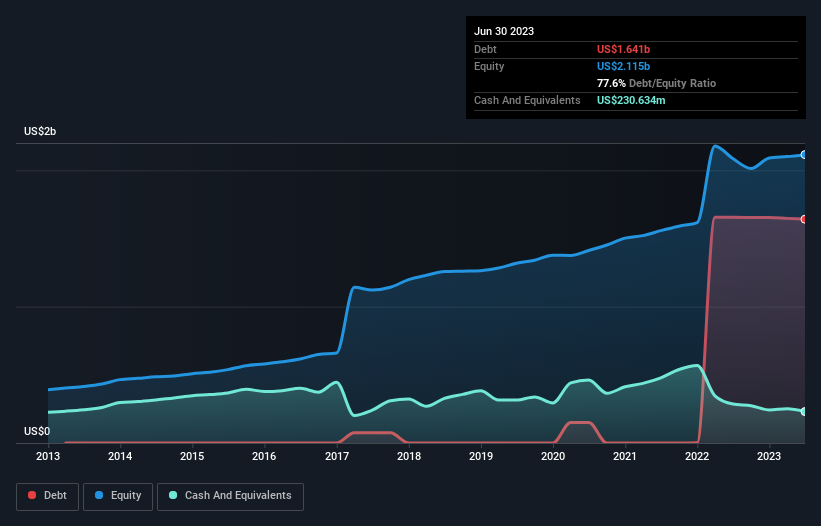- United States
- /
- Medical Equipment
- /
- NasdaqGS:ICUI
These 4 Measures Indicate That ICU Medical (NASDAQ:ICUI) Is Using Debt Extensively

David Iben put it well when he said, 'Volatility is not a risk we care about. What we care about is avoiding the permanent loss of capital.' So it seems the smart money knows that debt - which is usually involved in bankruptcies - is a very important factor, when you assess how risky a company is. As with many other companies ICU Medical, Inc. (NASDAQ:ICUI) makes use of debt. But the real question is whether this debt is making the company risky.
When Is Debt A Problem?
Debt and other liabilities become risky for a business when it cannot easily fulfill those obligations, either with free cash flow or by raising capital at an attractive price. Ultimately, if the company can't fulfill its legal obligations to repay debt, shareholders could walk away with nothing. While that is not too common, we often do see indebted companies permanently diluting shareholders because lenders force them to raise capital at a distressed price. Of course, the upside of debt is that it often represents cheap capital, especially when it replaces dilution in a company with the ability to reinvest at high rates of return. When we think about a company's use of debt, we first look at cash and debt together.
Check out our latest analysis for ICU Medical
What Is ICU Medical's Net Debt?
The chart below, which you can click on for greater detail, shows that ICU Medical had US$1.64b in debt in June 2023; about the same as the year before. However, it does have US$230.6m in cash offsetting this, leading to net debt of about US$1.41b.

A Look At ICU Medical's Liabilities
We can see from the most recent balance sheet that ICU Medical had liabilities of US$483.9m falling due within a year, and liabilities of US$1.86b due beyond that. Offsetting this, it had US$230.6m in cash and US$164.8m in receivables that were due within 12 months. So its liabilities total US$1.95b more than the combination of its cash and short-term receivables.
This is a mountain of leverage relative to its market capitalization of US$2.40b. Should its lenders demand that it shore up the balance sheet, shareholders would likely face severe dilution.
We measure a company's debt load relative to its earnings power by looking at its net debt divided by its earnings before interest, tax, depreciation, and amortization (EBITDA) and by calculating how easily its earnings before interest and tax (EBIT) cover its interest expense (interest cover). Thus we consider debt relative to earnings both with and without depreciation and amortization expenses.
While ICU Medical's debt to EBITDA ratio (4.9) suggests that it uses some debt, its interest cover is very weak, at 0.68, suggesting high leverage. In large part that's due to the company's significant depreciation and amortisation charges, which arguably mean its EBITDA is a very generous measure of earnings, and its debt may be more of a burden than it first appears. So shareholders should probably be aware that interest expenses appear to have really impacted the business lately. On a slightly more positive note, ICU Medical grew its EBIT at 11% over the last year, further increasing its ability to manage debt. There's no doubt that we learn most about debt from the balance sheet. But it is future earnings, more than anything, that will determine ICU Medical's ability to maintain a healthy balance sheet going forward. So if you want to see what the professionals think, you might find this free report on analyst profit forecasts to be interesting.
Finally, while the tax-man may adore accounting profits, lenders only accept cold hard cash. So it's worth checking how much of that EBIT is backed by free cash flow. Over the most recent three years, ICU Medical recorded free cash flow worth 51% of its EBIT, which is around normal, given free cash flow excludes interest and tax. This cold hard cash means it can reduce its debt when it wants to.
Our View
ICU Medical's struggle to cover its interest expense with its EBIT had us second guessing its balance sheet strength, but the other data-points we considered were relatively redeeming. But on the bright side, its ability to to grow its EBIT isn't too shabby at all. It's also worth noting that ICU Medical is in the Medical Equipment industry, which is often considered to be quite defensive. Taking the abovementioned factors together we do think ICU Medical's debt poses some risks to the business. So while that leverage does boost returns on equity, we wouldn't really want to see it increase from here. When analysing debt levels, the balance sheet is the obvious place to start. However, not all investment risk resides within the balance sheet - far from it. Case in point: We've spotted 2 warning signs for ICU Medical you should be aware of, and 1 of them is significant.
If you're interested in investing in businesses that can grow profits without the burden of debt, then check out this free list of growing businesses that have net cash on the balance sheet.
New: AI Stock Screener & Alerts
Our new AI Stock Screener scans the market every day to uncover opportunities.
• Dividend Powerhouses (3%+ Yield)
• Undervalued Small Caps with Insider Buying
• High growth Tech and AI Companies
Or build your own from over 50 metrics.
Have feedback on this article? Concerned about the content? Get in touch with us directly. Alternatively, email editorial-team (at) simplywallst.com.
This article by Simply Wall St is general in nature. We provide commentary based on historical data and analyst forecasts only using an unbiased methodology and our articles are not intended to be financial advice. It does not constitute a recommendation to buy or sell any stock, and does not take account of your objectives, or your financial situation. We aim to bring you long-term focused analysis driven by fundamental data. Note that our analysis may not factor in the latest price-sensitive company announcements or qualitative material. Simply Wall St has no position in any stocks mentioned.
About NasdaqGS:ICUI
ICU Medical
Develops, manufactures, and sells medical devices used in infusion therapy, vascular access, and vital care applications worldwide.
Fair value with moderate growth potential.
Similar Companies
Market Insights
Community Narratives




